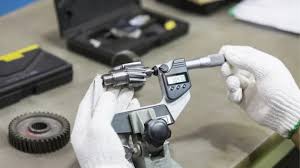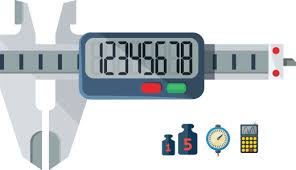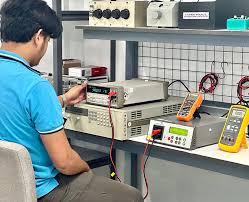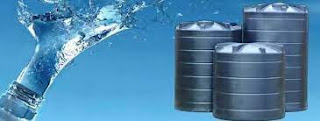Ensuring Accurate Results: Laboratory Instrument Calibration Services in Egypt
Laboratory instrument calibration is a crucial aspect of ensuring accurate and reliable results in scientific research and testing. In Egypt, there is a growing demand for high-quality calibration services to support the country's thriving laboratory industry. This article explores the importance of laboratory instrument calibration in Egypt and the various services available to meet this need. Whether it's for medical, environmental, or industrial laboratories, having precise and reliable instruments is essential for delivering accurate results. In this article, we will delve into the significance of laboratory instrument calibration in Egypt and highlight the various services and solutions offered to meet the industry's needs.
Laboratory instrument calibration services in Egypt are critical for ensuring accurate results in various scientific and medical fields. These services typically involve the precise adjustment and verification of the performance of various instruments and equipment used in laboratories, such as pipettes, balances, spectrophotometers, and more. Calibration services in Egypt are provided by specialized companies or organizations that have the expertise and equipment to ensure that instruments are functioning within specified tolerances. This is crucial for maintaining the accuracy and reliability of test results, which is essential in fields such as healthcare, pharmaceuticals, environmental testing, and research. Accurate calibration of laboratory instruments also helps to meet regulatory and quality standards, such as ISO 17025 and Good Laboratory Practice (GLP) requirements. Organizations that require reliable and traceable measurement results can benefit from outsourcing their calibration needs to professional service providers in Egypt. Additionally, calibration services may also include the provision of calibration certificates and documentation to demonstrate compliance with industry standards and regulations. Overall, ensuring accurate results through laboratory instrument calibration services is a critical aspect of maintaining the integrity of scientific and medical testing in Egypt.
Ensuring Accurate Results: Laboratory Instrument Calibration in Egypt

Laboratory instrument calibration in Egypt is a critical process for ensuring accurate results in scientific and research testing. Calibration involves comparing the measurements of an instrument to a known standard in order to identify and correct any deviations or inaccuracies. In the field of science and research, the accuracy of laboratory instruments is essential for obtaining reliable and credible data. In Egypt, there are specialized companies and calibration laboratories that offer services for calibrating a wide range of laboratory instruments, including but not limited to, mass, volume, temperature, pressure, and electrical instrumentation. These companies often utilize state-of-the-art equipment and follow international standards to ensure the accuracy and reliability of their calibration processes. Ensuring accurate results through laboratory instrument calibration is particularly important in industries such as pharmaceuticals, food and beverage, environmental testing, and medical diagnostics. In these fields, even small errors in measurement can have significant consequences, making regular instrument calibration a fundamental aspect of quality control and assurance. Furthermore, calibrated instruments also play a crucial role in complying with regulatory requirements and standards set by organizations such as the Food and Drug Administration (FDA) and the International Organization for Standardization (ISO). By engaging in regular calibration of laboratory instruments, organizations in Egypt can uphold the integrity of their research, testing, and production processes, ultimately leading to better decision-making, improved product quality, and increased confidence in their scientific findings.
Reliable Data Collection: Importance of Calibration in Egyptian Labs

Reliable data collection is essential in Egyptian labs to ensure accurate and consistent results. Calibration plays a crucial role in this process as it helps to maintain the precision and reliability of instruments and equipment used for data collection. Proper calibration ensures that measurements are accurate and consistent, which is essential for producing reliable data. In Egyptian labs, calibration is important for various reasons, including meeting regulatory requirements, ensuring the quality of research and testing, and maintaining the reputation of the lab. Without proper calibration, there is a risk of producing inaccurate data, leading to flawed conclusions and potentially costly mistakes. Furthermore, calibration helps to reduce the likelihood of errors and inaccuracies in data collection, ultimately enhancing the overall reliability and trustworthiness of the results obtained. By adhering to strict calibration procedures, Egyptian labs can demonstrate their commitment to producing high-quality, reliable data, which is essential for gaining the trust and confidence of stakeholders and clients.
Compliance with Standards: Calibration Practices in Egyptian Laboratories

The compliance with standards regarding calibration practices in Egyptian laboratories is an important aspect of ensuring the accuracy and reliability of test results. Calibration practices refer to the process of comparing the measurements of a particular instrument or device to a known standard in order to determine and adjust any deviations. In the context of laboratories, this is crucial for ensuring the precision and accuracy of test instruments such as spectrophotometers, balances, and pipettes. Adhering to international standards for calibration practices, such as ISO 17025, is essential for laboratories in Egypt to demonstrate their competence and reliability. This involves conducting regular calibrations using traceable standards, documenting the calibration process, and maintaining records of all calibration activities. Furthermore, compliance with calibration standards enhances the credibility of laboratory test results, promotes confidence in the quality of products and services, and fosters international recognition and acceptance of test data. Overall, the adherence to calibration standards is crucial for Egyptian laboratories to maintain the accuracy, reliability, and credibility of their test results, and to demonstrate their commitment to quality and professionalism in the scientific community.
The Role of Calibration in Maintaining Quality in Egyptian Lab Equipment
Calibration plays a crucial role in maintaining the quality and accuracy of lab equipment in Egypt. Accurate and precise measurements are essential for ensuring the reliability of scientific data and research outcomes. Through regular calibration, lab equipment such as spectrophotometers, chromatographs, and balances can be adjusted to meet established standards and specifications. This helps to minimize errors and ensure that results are consistent and reproducible. Additionally, calibration also helps to extend the lifespan of equipment and reduce the risk of costly repairs or replacements. In Egypt, labs that comply with international quality standards such as ISO/IEC 17025 are required to regularly calibrate their equipment to demonstrate their competence and capability in producing reliable results. Ultimately, calibration is a critical element in maintaining the quality and integrity of lab equipment in Egypt.
Calibration Protocols: Best Practices for Egyptian Lab Instrumentation
Calibration protocols are essential for maintaining accuracy and reliability in lab instrumentation. In the context of Egyptian laboratories, it is crucial to follow best practices to ensure precise measurements and consistent results. Key elements of calibration protocols for Egyptian lab instrumentation include regular scheduling of calibration procedures, documentation of calibration results, and adherence to international standards such as ISO 17025. It is also important to consider environmental factors, such as temperature and humidity, that can impact instrument performance. Furthermore, calibration protocols should outline proper training for personnel conducting the calibrations, as well as the use of traceable calibration standards and equipment. Regular audits and reviews of the calibration process can help identify any potential issues and ensure compliance with regulatory requirements. Overall, implementing best practices for calibration protocols in Egyptian lab instrumentation is crucial for maintaining the quality and reliability of test results, ultimately contributing to the credibility and effectiveness of laboratory operations.
Quality Assurance in Egyptian Labs: The Importance of Instrument Calibration
Quality assurance in Egyptian labs is critical for ensuring accurate and reliable results. Instrument calibration plays a crucial role in this process by ensuring the accuracy and precision of measurements. Proper calibration of lab instruments such as spectrophotometers, chromatographs, and balances is essential for producing valid data. Inaccurate instrument readings can lead to incorrect test results, compromising the quality of laboratory analyses. This can have important implications in various fields, including healthcare, environmental monitoring, and research. Therefore, regular instrument calibration is necessary to maintain the integrity of laboratory analyses and to comply with international quality standards. In the context of Egyptian labs, it is important to emphasize the significance of following standard calibration procedures and utilizing accredited calibration services. This will help ensure consistency, reliability, and traceability of measurements, ultimately contributing to the credibility and competence of Egyptian labs in both national and international settings.
Meeting Regulatory Requirements: Calibration of Laboratory Instruments in Egypt
calibration in Egypt 2025
Meeting regulatory requirements for calibration of laboratory instruments in Egypt is essential for ensuring the accuracy and reliability of test results. The Egyptian Ministry of Health and Population sets standards for laboratory instrument calibration to ensure the quality and validity of medical testing. The process involves regular calibration of instruments such as spectrophotometers, centrifuges, and pipettes to adhere to these standards. Calibration is typically performed by certified technicians or through accredited calibration laboratories. Compliance with regulatory requirements for calibration is critical for laboratories in Egypt to maintain their accreditation and meet the needs of patients and healthcare providers.

